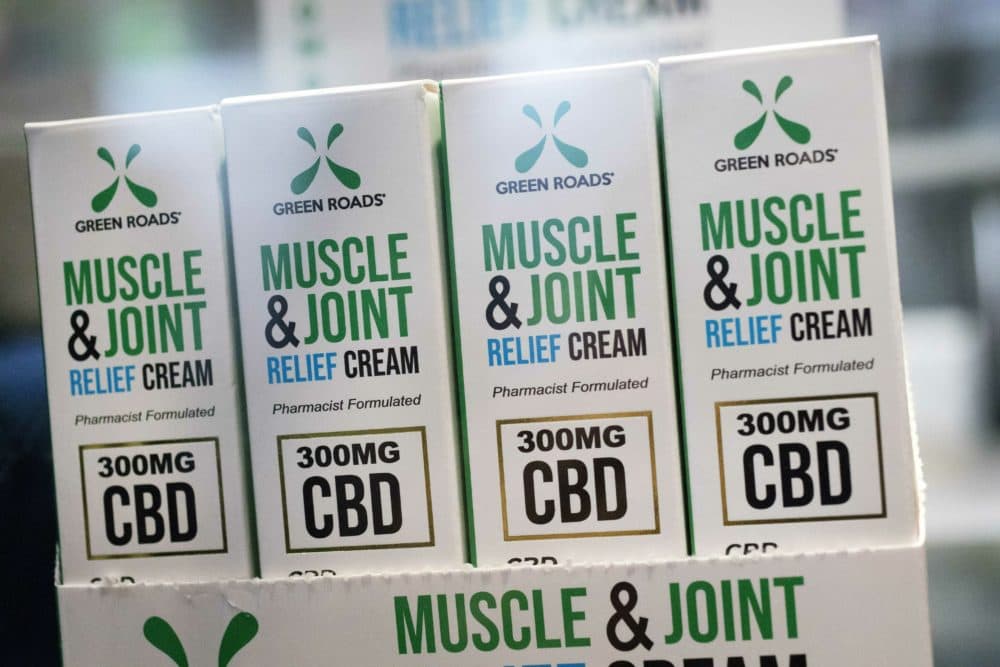Advertisement
Legislating Gummy Candy And Balms: Should Congress Pass A Law On CBD?

From anxiety to menstrual cramps, CBD — the trendy cannabis-derived compound — is touted these days as helpful for a broad variety of conditions. So might its healing qualities extend even to the Wild West of regulating (or failing to) American dietary supplements?
In this week's New England Journal of Medicine, a perspective piece suggests that it could.
Written by Harvard's Dr. Pieter Cohen, a supplement watchdog, and Dr. Joshua Sharfstein of the Johns Hopkins Bloomberg School of Public Health, it proposes a sort of a Grand Bargain on CBD. The basic idea: Congress should pass a law that makes CBD explicitly legal as a supplement, which it currently is not at the federal level. The law should also strengthen the requirements for CBD safety — an approach that could serve as a model for other supplements.
The piece proposes "for Congress to pass a law that both waives the prohibition created by CBD’s prior approval as a drug and creates clear, reasonable pathways for low-dose CBD and other new substances to be safely introduced into supplements and food."
Three quick questions for Dr. Cohen:
How would you sum up what you’re proposing?
The system to introduce new ingredients into food and supplements is broken. Let's take advantage of the widespread enthusiasm for CBD to fix it.
We think this is possible now because there is tremendous interest in CBD products from a very diverse group of stakeholders. Southern farmers can profit from growing hemp, cannabis enthusiasts can gain access to CBD products, and the supplement industry can profit. This will only be sustainable if CBD products are safe, and to ensure the safety of CBD, and all new supplements, we need to make some common-sense changes to the law.
Is CBD really so unique it needs its own law?
No! We think it would be a mistake for Congress to write a law just for CBD. Instead, we should use the opportunity that CBD provides us to close major loopholes that permit dangerous ingredients to enter dietary supplements and, along the way, create a potential path for marketing safe CBD products.
What response and push-back do you expect?
Pushback: Doctors may argue that we're suggesting CBD can bypass the traditional pathway for drugs to be approved by the FDA and that sets a hazardous precedent. Industry advocates might think that our suggestions to improve the safety of supplements are too much of a burden.
At what point would you be willing to try CBD products yourself or for your family?
When I was talking about this piece with my family, my in-laws told me they were already using CBD ointment to treat their aching joints. So, in my family, apparently no one is asking my opinion.
Just a bit more background: The FDA is currently considering how to regulate CBD. Its legal status — as with many marijuana-related substances — is a bit confusing. Here's how the New England Journal piece describes it:
Many store shelves now feature CBD oils, gummy candies, joint balms, capsules, and other products. In December 2018, however, the FDA cast a shadow over the industry by stating that CBD may not be sold in food or supplements on the grounds that the chemical has already been approved as a drug. The agency further explained that were this obstacle (which is based in federal statute) to be overcome, CBD would then be subject to oversight either as a “new dietary ingredient” in supplements or as a food additive.
In response, some states began taking products containing CBD off the market. In other areas, however, manufacturers and local officials are disregarding federal law, much as some states permit the sale of recreational cannabis. The FDA, for the time being, has focused its limited enforcement resources on removing CBD products that make claims of curing or treating disease, leaving many CBD products available for sale.
We thus seem to be headed toward a confusing, uneven, and potentially risky market in CBD products. This situation creates an opportunity for Congress to take action.
